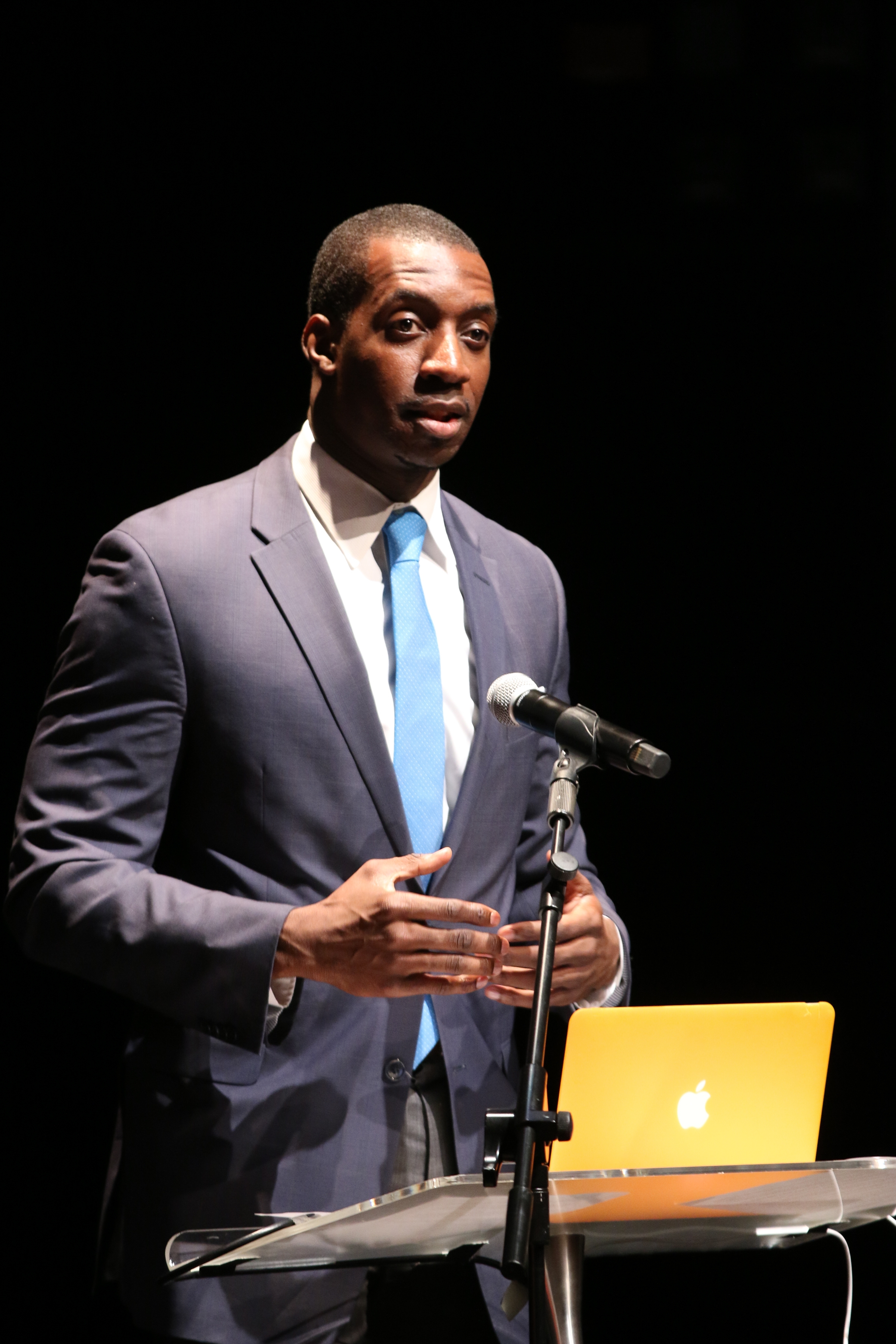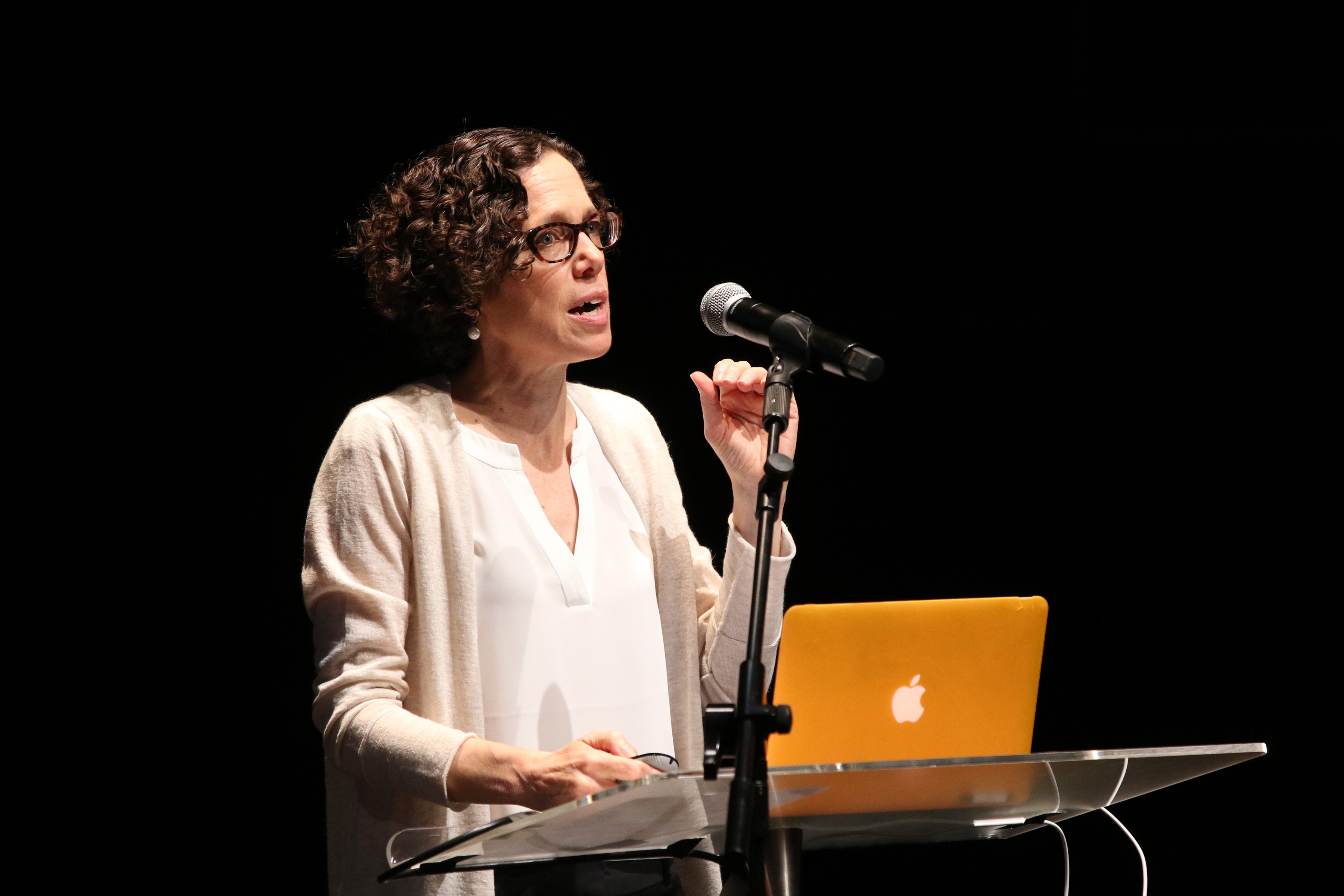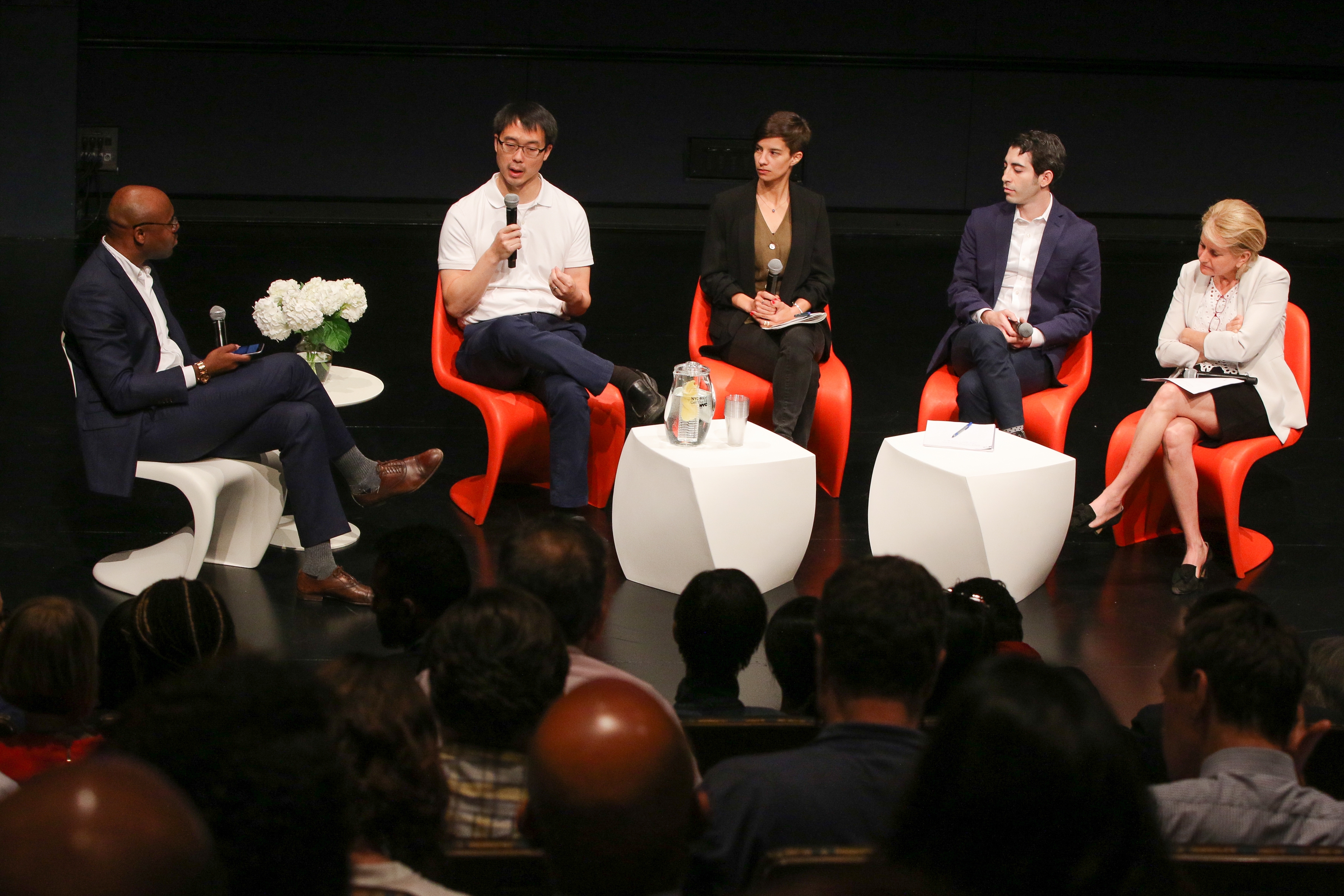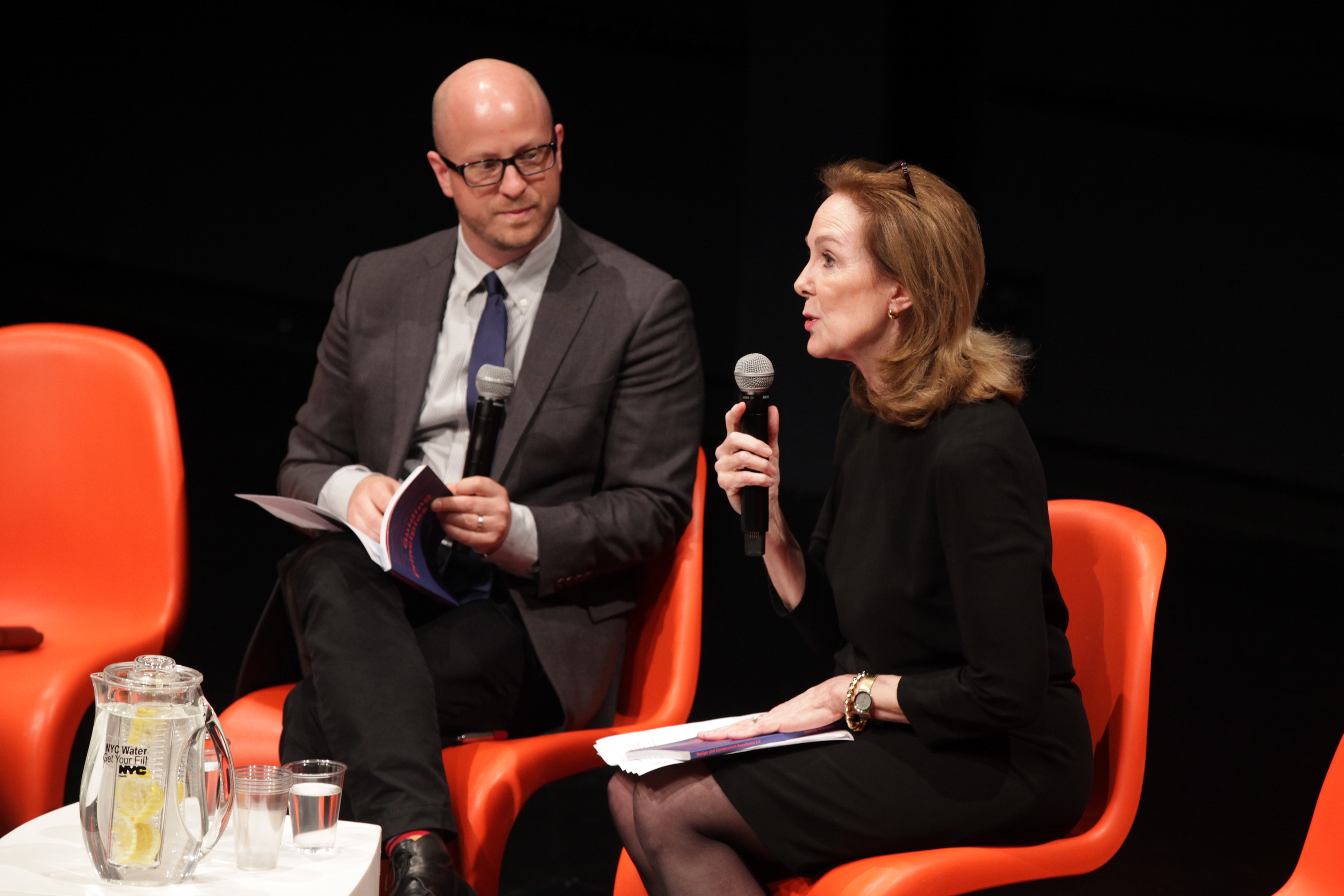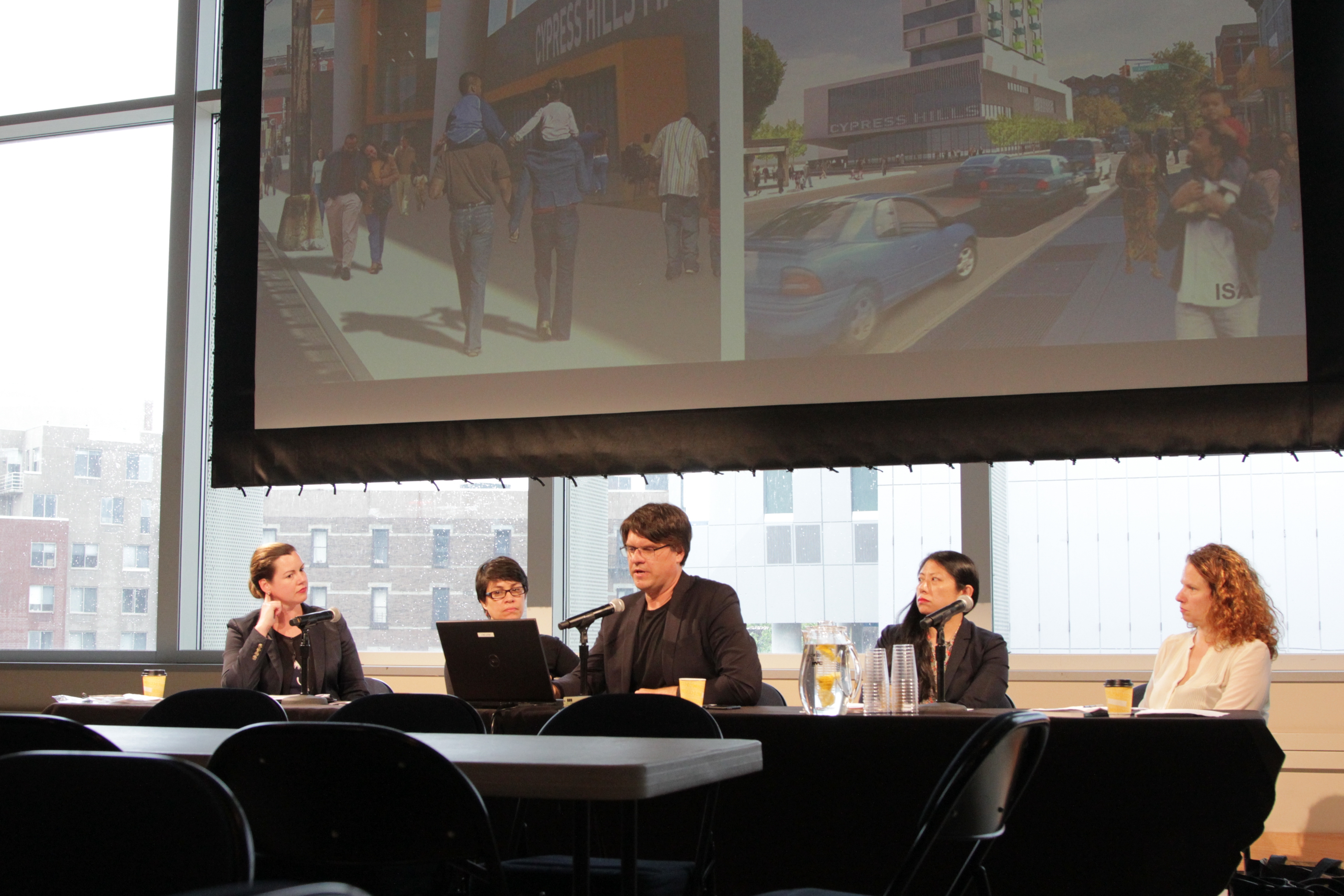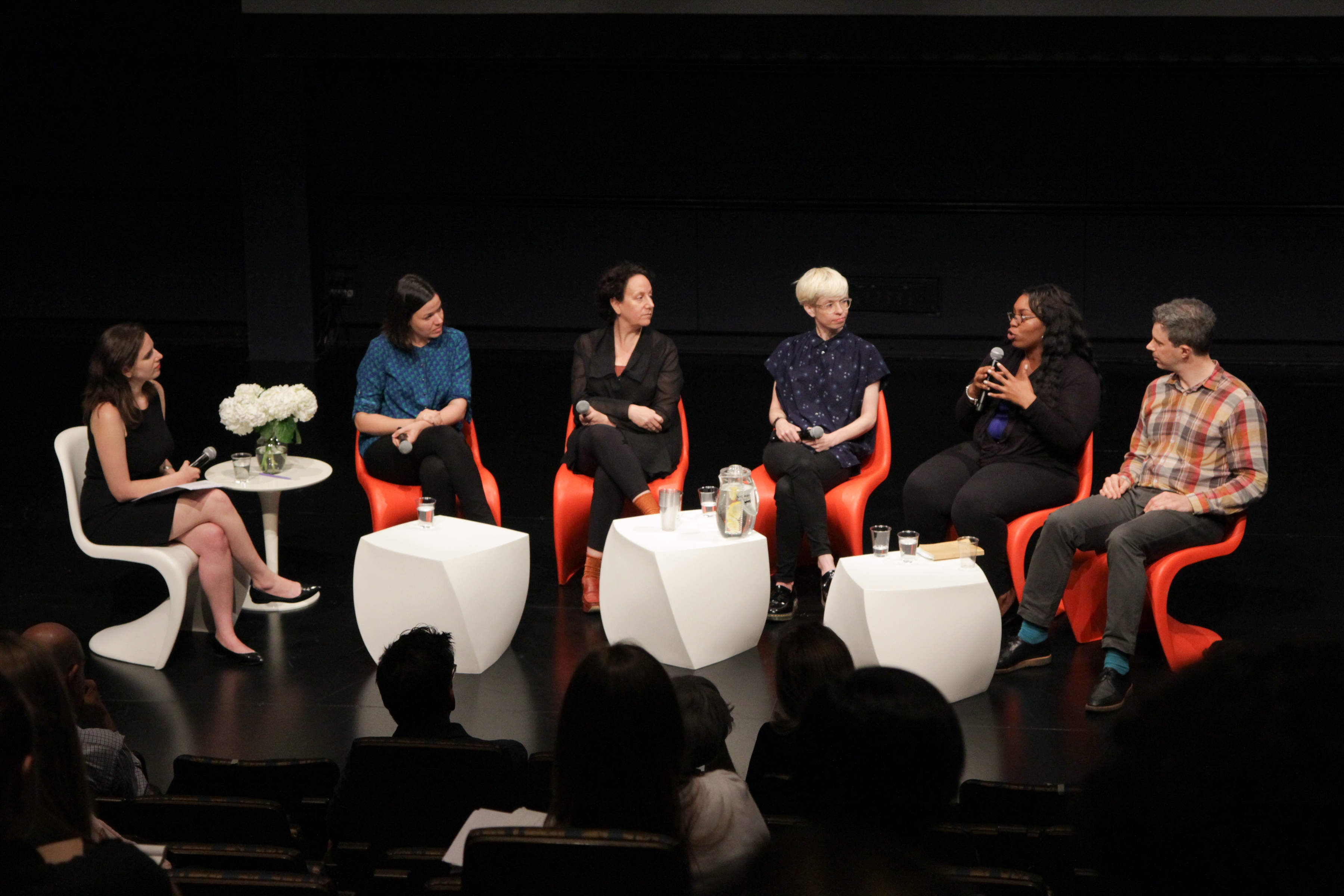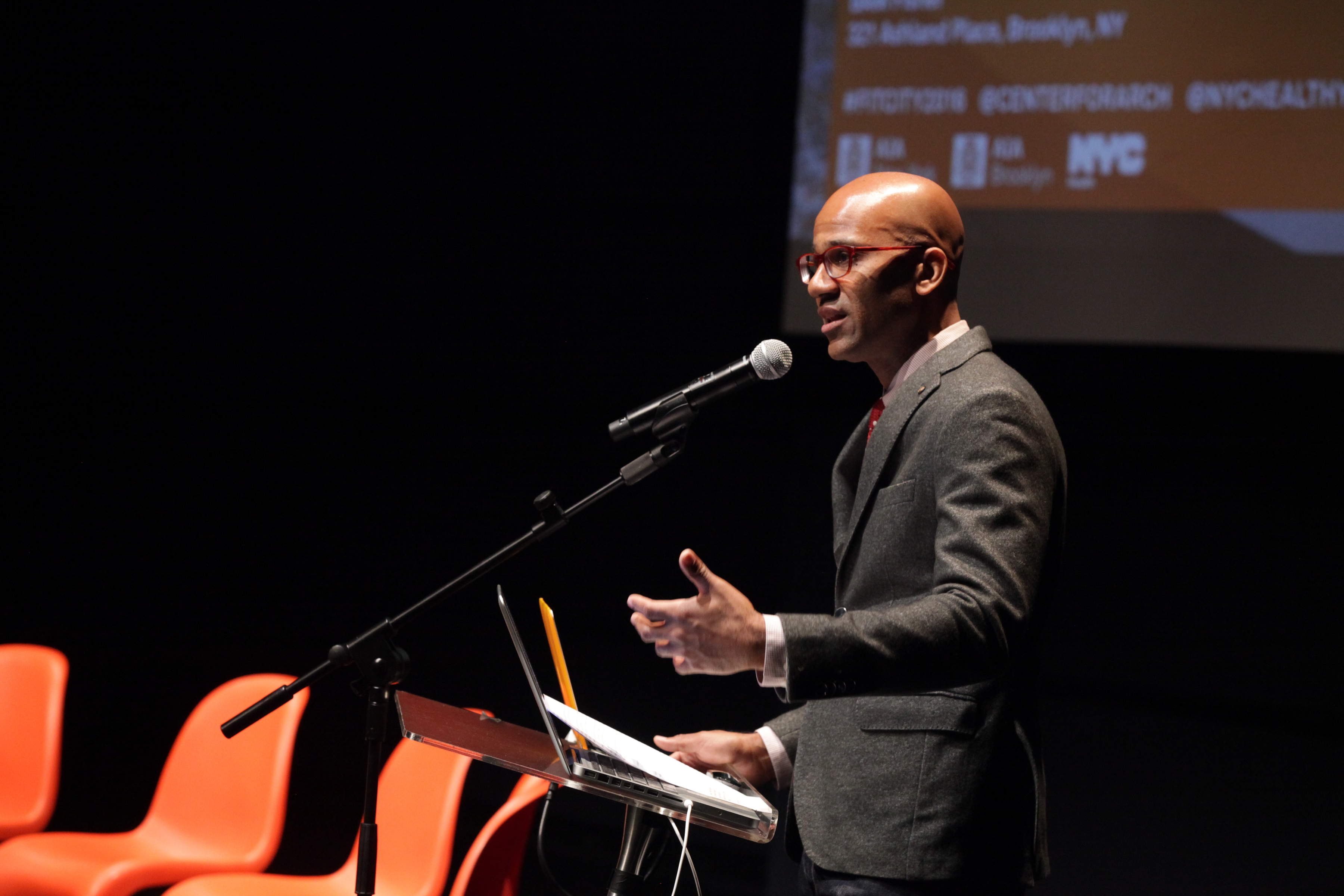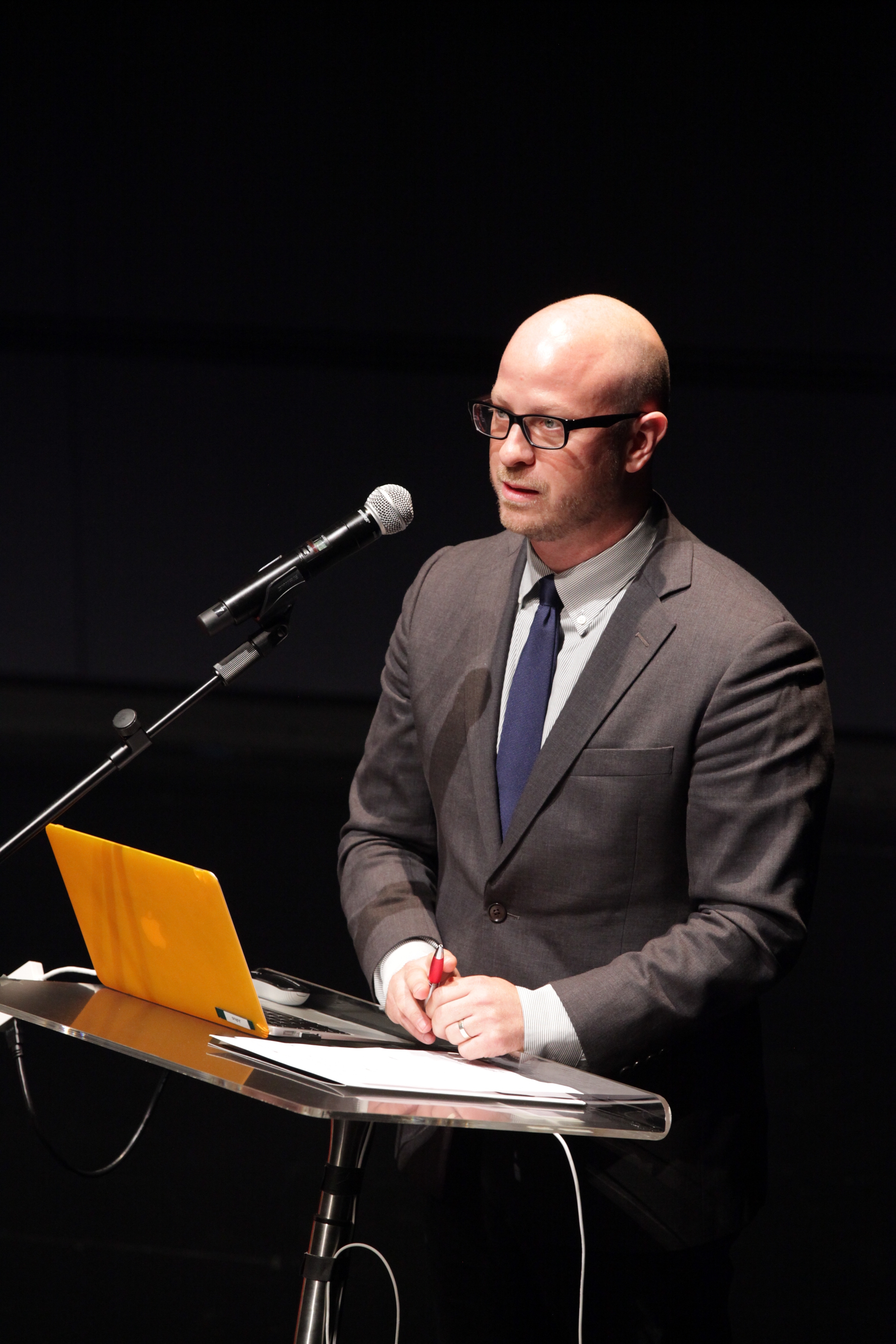by: EmmaPattiz
On 06.08.16, AIANY hosted the 11th annual FitCity conference with the NYC Department of Health and Mental Hygiene. This year’s conference was held at BAM Fisher, and much of the day focused on changes in the Brooklyn neighborhoods surrounding the venue.
FitCity 11 addressed three key strategies for human-centered design: data-driven decision-making, community engagement, and finance innovation in healthy housing. Keynote speakers Ingrid Gould Ellen and Kai Wright bookended the day with two perspectives on neighborhood change.
Lydon Sleeper, Senior Vice President, Government and Community Relations, NYC Economic Development Corporation, presented the nascent Brooklyn-Queens Connector project. Margaret Castillo, FAIA, Chief Architect, NYC Department of Design and Construction (DDC), shared how the new Design and Construction Excellence 2.0 Guiding Principles are impacting the way DDC approaches community engagement. Three panels – “Measuring Access: Data, Equity, and Infrastructure,” “Putting People First: Community Engagement, User Experience, and the Built Environment,” and “Funding Innovation in Health and Housing” – highlighted case studies and best practices.
Video from the conference to come.
Policy Points
- The NYC Lobbying Bureau’s Amnesty Period ends on 06.30.16. Make sure your firm has all of the information it needs to properly comply with the updated Lobbying Law. AIANY is continuing to work with the City Clerk to adequately define the relevant rules that have not yet been confirmed under the law.
- Last week, the legislative session ended in Albany. The New York City Design Build Authorization bill, which was updated after AIA New York State submitted comments but still included language that left architects vulnerable, failed to pass in the Assembly and the Senate. Before next session, we hope to push CM at Risk as a better alternative. The Emergency Responder Act also died this session. It passed in the Senate but did not pass the Assembly Codes Committee. A bill we actively opposed, the Interior Design Practice Expansion, fortunately died in the Assembly and Senate Higher Education Committees.
- AIANY testified at the 06.22.16 City Council Committee on Housing and Buildings hearing. Working with Urban Green Council, we addressed the updated Energy Code for New York City and New York State, along with a number of other bills that would help to reduce energy use in buildings.
- The U.S. Senate passed S. 2012, the Energy Policy Modernization Act, which repeals targets for reducing fossil fuel consumption in federal buildings contained in Section 433 of the Energy Independence and Security Act of 2007. AIA National commented in response.
- A new energy code is coming! Make sure you are prepared. AIANY is hosting a number of the Urban Green Council’s “Conquer the Code” training courses to help architects and engineers. Find dates and registration information here.
- The new NYC and NYS energy codes will go into effect on 10.03.16. Any projects filing after that date will need to comply. Sign up for residential and commercial trainings at the Center for Architecture, or bring training sessions to your firm. More information available on Urban Green Council’s website.








